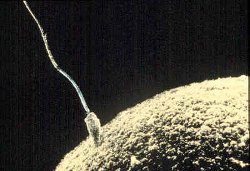 |
**__Related stories:__***linkurl:Slow sperm prevent inbreeding;http://www.the-scientist.com/news/display/57919/
12th January 2011]*linkurl:Lonely beetles make more sperm;http://www.the-scientist.com/news/display/57288/
[14th April 2010]*linkurl:Sperm sparring spotted;http://www.the-scientist.com/blog/display/57222/
[18 March 2010]


















